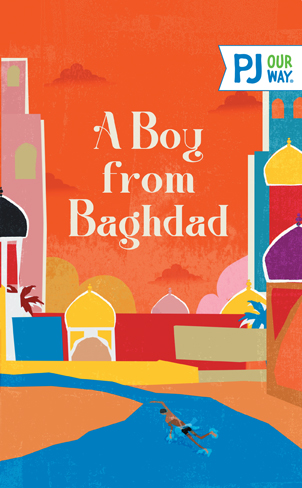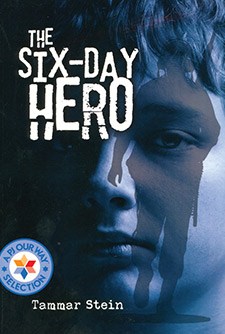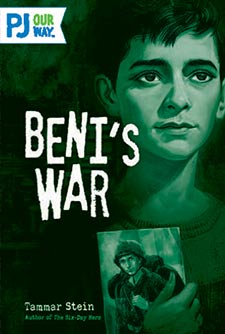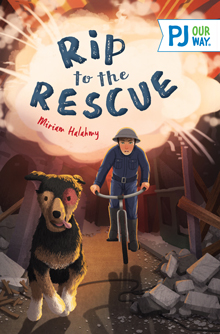A Boy From Baghdad
Salman must flee his beautiful, comfortable home in Iraq- it’s no longer safe for Jews.
He’s going to the Promised Land, the homeland of the Jewish people, flowing with milk and honey, but what IS this place?
Tents? No electricity? Horrible, pickled herring? And bullies…
Average Rating
( hint: Login to leave a review! )
29 Reviews
Leave Review
What the Book is About
Jewish Content & Values
Content Advisory
It’s 1951, and twelve-year-old Salman Shasha dreams of becoming an Olympic swimmer. But the Iraqi government has been turning against its Jewish community, and eventually Salman and his family must leave Baghdad for their own safety. They go to Israel with high hopes, but when they arrive, they realize that the promised land is not what they thought it would be. The Ashkenazi Jews look down on families like Salman’s and treat them badly. Salman’s family, and other new arrivals from Iraq, must live in terrible conditions in a refugee camp. Facing taunts from the Ashkenazi bullies, Salman decides to focus on beating them in a swimming race. Eventually he realizes that with hard work, and especially determination, anything is possible.
-
Salman and his family celebrate Shabbat, the High Holy Days and Passover, eat Iraqi-Jewish food and speak Judeo-Arabic. Salman attends Jewish school and a club to learn Hebrew.
-
In Israel, the Iraqi kids adopt Hebrew names. Salman’s sister leaves to join a kibbutz, and Salman and his cousin meet a kind Holocaust survivor who gives them eggs, which are a treat given the terrible and unfamiliar food in the refugee camp.
-
There is a considerable amount of detail about the hardships the family endure as refugees in Israel, and the discrimination against them by the Ashkenazi majority, but the Ashkenazi kids at the youth club eventually accept and befriend the newcomers.
There is detail of physical and verbal abuse of the Iraqi Jews by many of their Arab neighbors. Salman and his cousin mention their Uncle Samir, who was murdered when he was 16. In Israel, the family has to live in a badly equipped refugee camp, with no recognition of their cultural differences as Mizrachi Jews. The Ashkenazi Jews look down on them and make racist comments to and about them.
What the Book is About
It’s 1951, and twelve-year-old Salman Shasha dreams of becoming an Olympic swimmer. But the Iraqi government has been turning against its Jewish community, and eventually Salman and his family must leave Baghdad for their own safety. They go to Israel with high hopes, but when they arrive, they realize that the promised land is not what they thought it would be. The Ashkenazi Jews look down on families like Salman’s and treat them badly. Salman’s family, and other new arrivals from Iraq, must live in terrible conditions in a refugee camp. Facing taunts from the Ashkenazi bullies, Salman decides to focus on beating them in a swimming race. Eventually he realizes that with hard work, and especially determination, anything is possible.
Jewish Content & Values
-
Salman and his family celebrate Shabbat, the High Holy Days and Passover, eat Iraqi-Jewish food and speak Judeo-Arabic. Salman attends Jewish school and a club to learn Hebrew.
-
In Israel, the Iraqi kids adopt Hebrew names. Salman’s sister leaves to join a kibbutz, and Salman and his cousin meet a kind Holocaust survivor who gives them eggs, which are a treat given the terrible and unfamiliar food in the refugee camp.
-
There is a considerable amount of detail about the hardships the family endure as refugees in Israel, and the discrimination against them by the Ashkenazi majority, but the Ashkenazi kids at the youth club eventually accept and befriend the newcomers.
Content Advisory
There is detail of physical and verbal abuse of the Iraqi Jews by many of their Arab neighbors. Salman and his cousin mention their Uncle Samir, who was murdered when he was 16. In Israel, the family has to live in a badly equipped refugee camp, with no recognition of their cultural differences as Mizrachi Jews. The Ashkenazi Jews look down on them and make racist comments to and about them.





